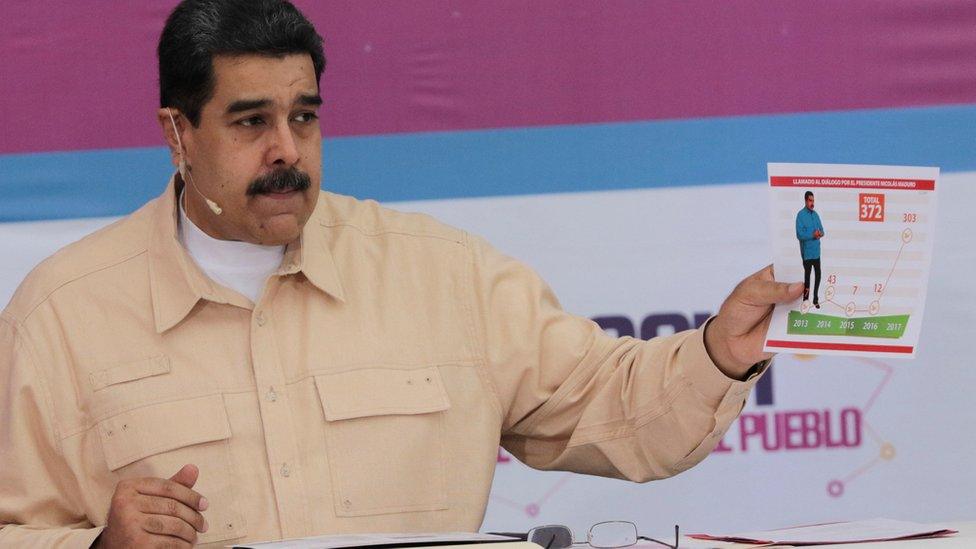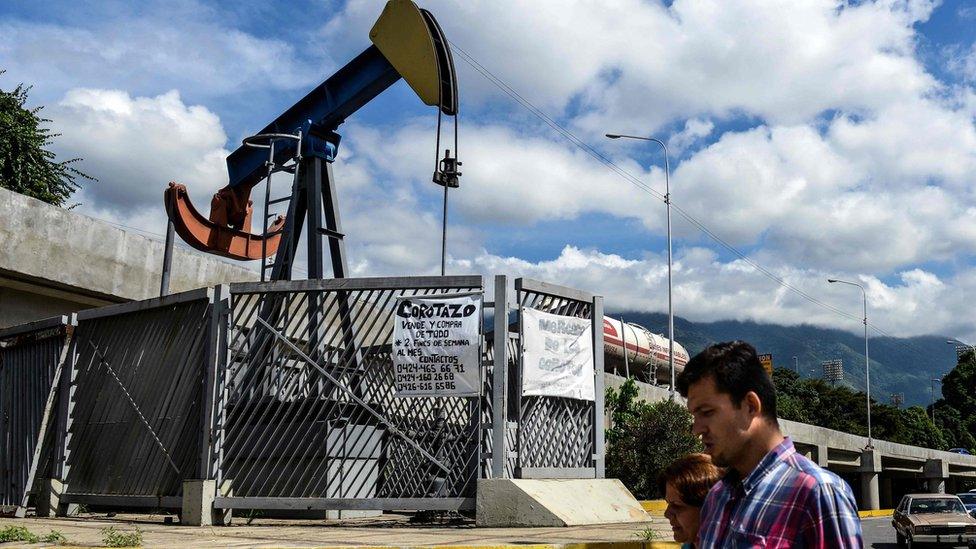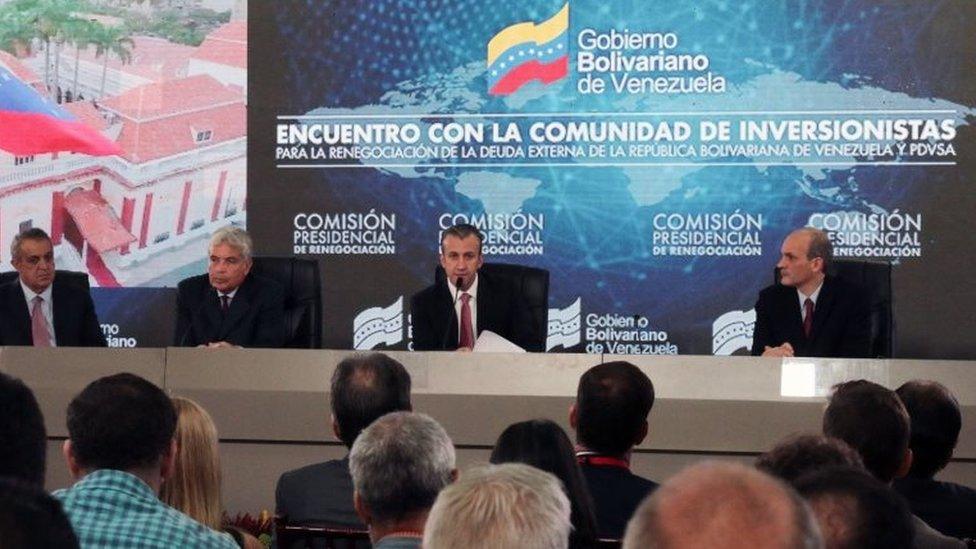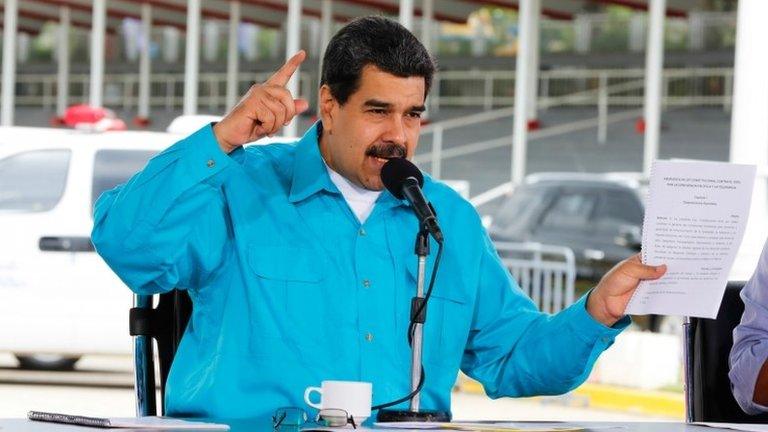Venezuela unveils virtual currency amid economic crisis
- Published

President Maduro made the announcement during his weekly TV and radio programme
Venezuelan President Nicolás Maduro has announced the creation of a new virtual currency in a bid to ease the country's economic crisis.
He said the Petro would be backed by Venezuela's oil, gas, gold and diamond wealth.
Opposition lawmakers, however, poured scorn on the plan.
Venezuela's economy has been hit by falling oil revenue and the plummeting value of its existing currency, the bolivar.
President Maduro has also railed against US sanctions which he describes as a "blockade".
In a televised announcement on Sunday, Mr Maduro said the new crypto-currency would allow Venezuela "to advance in issues of monetary sovereignty, to make financial transactions and overcome the financial blockade".
"The 21st Century has arrived!" he added to cheers from supporters.
He gave no details on how, or when, the new currency would be launched.

Oil has long been the mainstay of the Venezuelan economy
The move follows increasing global interest in the crypto-currency Bitcoin.
A US regulator recently said it would let two traditional exchanges begin trading in Bitcoin-related financial contracts, although the digital currency continues to prove volatile.
Venezuela owes an estimated $140bn (£103bn) to foreign creditors and economists suggest Mr Maduro is looking to try to pay them with Petros as he seeks to restructure the country's debt.
Opposition lawmakers insisted the proposed currency would need the backing of the National Assembly, and some doubted it would ever happen.
"It's Maduro being a clown. This has no credibility," opposition lawmaker and economist Ángel Alvarado told Reuters news agency.
Venezuela has historically relied on its oil wealth to support its economy but a decline in oil prices has sent the country into economic and political crisis.
The US and European Union have imposed sanctions, citing repressive policies by the government.
Last month, Russia agreed to restructure $3.15bn (£2.4bn) in debt owed by Venezuela. The deal allows Venezuela to make "minimal" repayments on its Russian obligations over the next six years.
- Published14 November 2017

- Published13 November 2017
